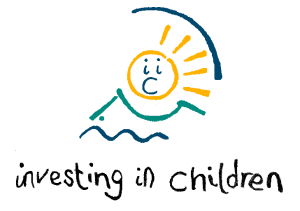History Long Term Plan
History Policy
Intent
- To ensure children learn and remember historical knowledge.
- To allow children build on prior knowledge through a carefully sequenced and progressive curriculum.
- To inspire a love of history that will last for the children’s lives.
- To broaden children’s understanding of the past from their immediate past to our local history, to history of the U.K and finally history of the wider world.
- To ensure children know that history is the study of the past and that historians use a variety of specific and general skills and techniques to investigate the past.
- To ensure that children understand that information can be presented in a variety of ways and that these sources of information need to be investigated and questioned for validity and usefulness.
- To show children that events, people and places in the past can have an impact on our world today and on the future.
- To ensure children will have a secure knowledge of the chronology of significant events, people and time periods locally, nationally and in the wider world. This chronological understanding will become more in-depth as the children progress through the school.
- To provide opportunities for children to use their historical understanding and to apply this in a variety of contexts and situations, for example, by considering the similarities and differences between different periods or ways of life or by making links between main events, situations and changes.
Implementation
- Staff will use research around cognitive science to help children learn and remember more
- Staff will check understanding through spaced retrieval exercises
- History will be taught the first half of each term (unless different position agreed by co-ordinator) and will begin in the Autumn Term with a Local Study.
- Throughout units of work teachers will make links and encourage children to make links between past learning and historical events, periods or skills being taught.
- Teachers will ensure that lessons are clearly linked to a historical skill.
- Teachers will ensure that lessons are planned in sequences that provide children with the opportunities to review, remember, deepen and apply their understanding.
- In each unit of work, teachers will ensure that a wide variety of sources and resources are used – local resources, trips, visitors etc
- Book scrutinies are regularly undertaken and immediate feedback is given. This feedback should be followed up within 2 weeks of the book scrutiny taking place.
- Short ‘learning walks’ take place each term that History is taught in.
- Teachers will use informal assessments within lessons at the end of units to gain understanding and shape teaching and learning
- Opportunities are provided to enhance children’s experiences both inside and outside the classroom – trips, visitors, real life situations etc
Impact
- Knowledge drives the learning in class
- Inspirational teaching and learning takes place which promotes a curiosity and excitement about the subject.
- Children are provided with opportunities to collaborate in a variety of sized groups and on different sized projects.
- Children are given opportunities to succeed but also to be challenged and fail to promote resilience.
- Children know and understand the history of these islands as a coherent, chronological
narrative, from the earliest times to the present day: how people’s lives have shaped
this nation and how Britain has influenced and been influenced by the wider world - Children know and understand significant aspects of the history of the wider world: the nature of
ancient civilisations; the expansion and dissolution of empires; characteristic features
of past non-European societies; achievements and follies of mankind - Children gain understanding of historical vocabulary and concepts
- Children can make historical enquiries
- Children make links with the past














